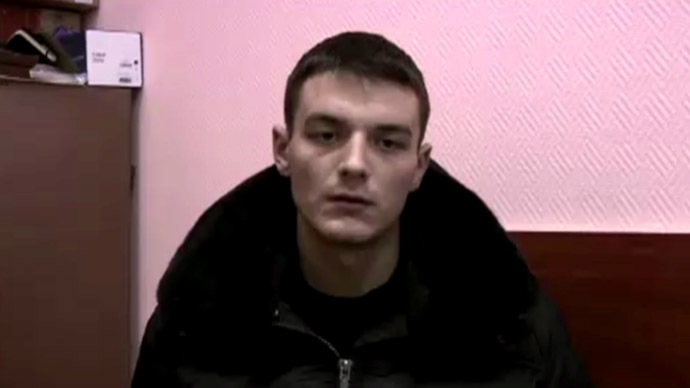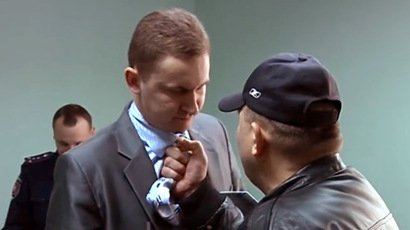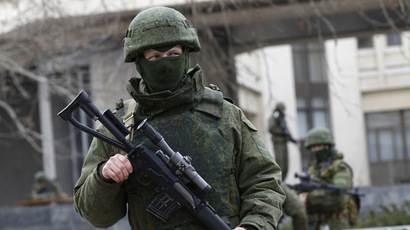US military seize documents raided by Ukrainian radicals – suspected looter

Ukrainian radical activists are conducting organized searches of residences of former government officials and handing over all documents to the US military, a man who says that he took part in some of these operations claims.
The allegations come from a Russian citizen who was detained by the Federal Security Service (FSB) shortly after returning from Ukraine. The 21-year-old, who calls himself Vladislav, says he spent some three days among the ranks of the Right Sector group in Kiev after the ousting of President Viktor Yanukovich, and took part in the raids of his deposed officials.
“They load buses with the self-defense troops and go to MPs’ dachas in the suburbs, to their apartments, and break down their doors. It’s not looting, like in taking furniture and stuff. They take documents and hand them over to special people, who check them,” he said in an interview with the Russia-24 news channel.
Vladislav says he saw a group of people, whom he calls American military, who copied or took some of the documents from the radicals.
“It was on the afternoon of February 26, when an American group came in two Mercedes cars. Then American troops came out wearing their uniforms,” he recalled.
The man claims that Germans, too, collected intelligence with the help of the radical group, but at some point they curbed their activities.
Apart from the documents, the Right Sector activists took valuables from the raided residences, but the loot was not taken by the activists themselves. Instead it was handed over to intendants, to be sold. The money would then be used to buy weapons in the black market for the group, it was said.
But the “captains” of the radicals are not as strict with discipline in other areas, the man said.
“To keep men from raving about, the captains give them a bit of freedom in the city. Like telling them ‘Go rob some shops or car dealerships,’” he explained. “It’s not to allow serious violence at Maidan itself, so that the structure they built didn’t collapse.”
Vladislav says he arrived in Kiev on Feb. 25, days after the most violent clashes hit the capital. A trained security guard, he came to the Ukrainian capital partially for an adventure, partially with a hope of participating in looting, he said.
He brought with him from Russia a bulletproof vest, a handgun and a complete set of protective equipment. Actually this same attire brought him into trouble, when he returned to Russia, as police thought he looked suspicious.
He says he was treated with suspicion by Rights Sector activists on the account of his being Russian. He had to take a polygraph test to prove that he was not “a Russian sniper,” a member of an alleged secret team of Russian special operation troops, whom some Maidan activists accuse of killing protesters, but whose existence was never proven. The hostility didn’t pass after he passed the test, Vladislav said, so he decided to leave Ukraine.
He insists that he didn’t get any money for his short tour to Kiev, but mentions “foreign mercenaries” in the interview. It’s not clear who those people may actually be from a legal point of view, considering Vladislav’s own dubious experience with the Right Sector.














